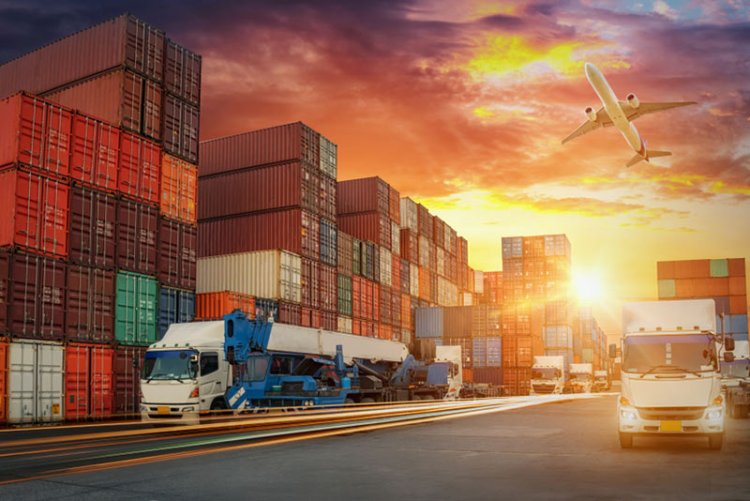Connecting Cities: Expert Road Cargo Transport from Dubai to Riyadh
Efficient road cargo from Dubai to Riyadh offers secure, timely deliveries, supporting trade with professional logistics and cost-effective freight solutions.

In today’s interconnected Gulf economy, the land route from Dubai to Riyadh has emerged as one of the most important trade corridors. Road cargo services along this route not only support bilateral trade between the United Arab Emirates (UAE) and Saudi Arabia (KSA) but also act as a vital lifeline for the region's logistics ecosystem. Businesses across various sectors retail, automotive, electronics, and construction rely heavily on efficient cargo movement to maintain inventory, meet demand, and stay competitive.
Strategic Importance of the Dubai Riyadh Route
The road network between Dubai and Riyadh spans approximately 1,000 kilometers, crossing the borders at Al Batha–Ghuwaifat, one of the busiest land crossings in the Gulf. This corridor is crucial for several reasons:
-
It connects two of the largest economies in the region.
-
It facilitates trade between free zones in Dubai and industrial hubs in Saudi Arabia.
-
It reduces dependency on air or sea freight for time-sensitive or moderately-sized shipments.
Given the strong political and economic ties between UAE and KSA, this land route has witnessed continuous improvement in infrastructure, customs clearance procedures, and transport regulations.
Road Cargo: The Preferred Choice for Regional Trade
Road cargo transport has become the go-to mode for many businesses trading between Dubai and Riyadh. Here's why:
1. Speed and Flexibility
Compared to sea freight, road transport offers faster delivery times and greater schedule flexibility. Many logistics providers offer same-day pickup and next-day delivery options depending on cargo size and customs clearance.
2. Cost-Effectiveness
For short to mid-range distances, road cargo offers a more economical solution than air freight. It is ideal for bulk shipments, palletized goods, or less-than-truckload (LTL) cargo.
3. Door-to-Door Service
Road freight allows for seamless end-to-end logistics without requiring multiple modes of transport. This reduces handling costs and minimizes the risk of damage or delay.
Types of Road Cargo Services Available
Businesses can choose from a variety of cargo solutions depending on their needs:
-
Full Truckload (FTL): Dedicated trucks for large shipments.
-
Less Than Truckload (LTL): Shared cargo space for smaller loads.
-
Refrigerated Trucks: For perishable goods like food, pharmaceuticals, or flowers.
-
Flatbed Trailers: For oversized or heavy machinery.
-
Hazardous Goods Transport: Special vehicles and certified drivers for chemicals or flammable materials.
Leading logistics providers offer real-time GPS tracking, insurance, and customs clearance support as part of their packages.
Customs and Regulatory Compliance
One of the key aspects of cross-border road cargo is navigating the customs process at the UAE–Saudi border. Compliance with regulations, proper documentation, and adherence to vehicle weight and cargo safety standards are essential for smooth transit.
Customs procedures have been streamlined in recent years to facilitate faster clearance, especially for registered logistics companies that maintain a consistent compliance record. A trustworthy freight partner plays a vital role here, ensuring your goods are cleared efficiently without delays.
Technology-Driven Freight Solutions
Modern road cargo is powered by advanced logistics technologies that enhance efficiency and transparency:
-
Fleet Management Systems: Optimize routes and fuel consumption.
-
Real-Time Tracking: Lets clients monitor cargo movement 24/7.
-
Digital Documentation: Minimizes paperwork and speeds up customs processes.
-
Predictive Analytics: Helps businesses forecast demand and manage supply chain risks.
Many logistics companies in Dubai offer web portals and mobile apps where clients can book services, track shipments, and access invoices.
Choosing the Right Logistics Partner
To make the most of the road cargo route from Dubai to Riyadh, it's crucial to partner with an experienced and reputable logistics provider. Consider these factors:
-
Experience in cross-border transport and regional knowledge.
-
Fleet size and availability of different vehicle types.
-
Customer service and communication standards.
-
Technology and tracking capabilities.
-
Rates and value-added services like warehousing and packaging.
Working with a provider that understands both Dubai’s trade dynamics and Riyadh’s import requirements can save time, money, and potential legal issues.
Industry Sectors That Rely on This Route
The Dubai–Riyadh road corridor serves a wide range of industries:
-
Retail: Fast delivery of fashion, electronics, and FMCG goods.
-
Automotive: Spare parts and complete vehicles transported to dealerships.
-
Construction: Building materials and heavy equipment moved on schedule.
-
Pharmaceuticals: Temperature-controlled freight for sensitive medications.
-
E-Commerce: Rapid order fulfillment from Dubai’s warehouses to customers in Riyadh.
Sustainability and the Future of Road Cargo
With a growing focus on green logistics, many companies are exploring ways to reduce their carbon footprint in road transport. This includes the adoption of fuel-efficient vehicles, use of eco-friendly packaging, and route optimization software to lower emissions.
As regional cooperation expands under initiatives like the Gulf Cooperation Council (GCC) transportation strategy, we can expect even more streamlined road networks, faster customs processing, and integrated digital platforms to support trade.
Conclusion
Road cargo from Dubai to Riyadh continues to be a cornerstone of Gulf logistics, offering speed, cost-effectiveness, and reliability for businesses of all sizes. Whether you’re an established enterprise or a growing e-commerce brand, this land route provides the agility and connectivity needed to thrive in today’s fast-paced trade environment.
By choosing the right logistics partner and leveraging modern technology, businesses can fully unlock the potential of this key transportation corridor driving success across borders.
What's Your Reaction?

















